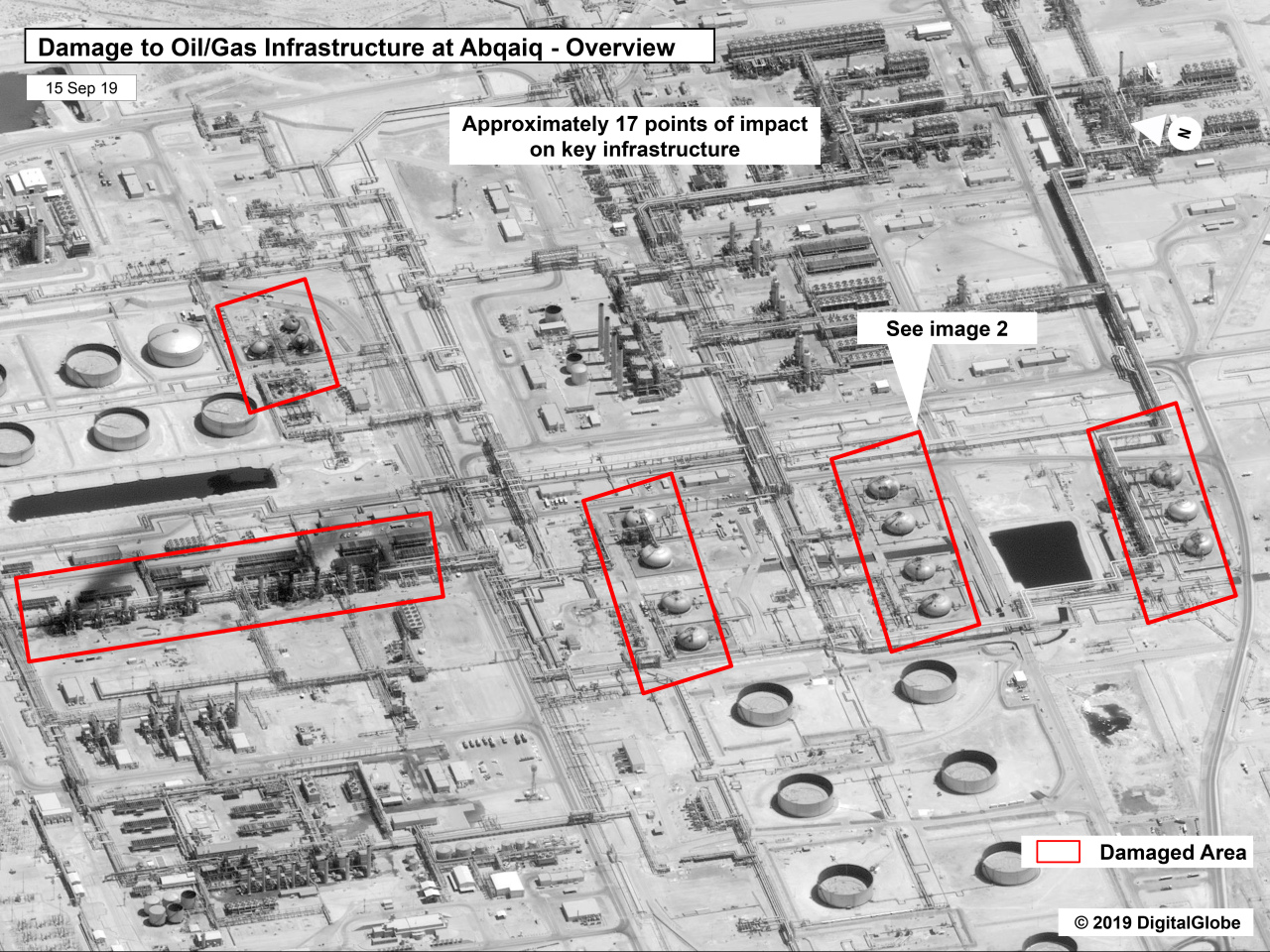The South Korean government and oil refineries held an unscheduled meeting Monday in response to the setback of Saudi Arabian oil facilities being hit by drone strikes, agreeing that there will be no supply issues for the time being and pledging to closely watch developments.
The Ministry of Trade, Industry and Energy convened the emergency meeting with local oil refiners -- S-Oil, Hyundai Oilbank, GS Caltex and SK Innovation -- to inspect supply issues, after President Moon Jae-in ordered the government to promptly respond to the incidents in order to minimize the negative impact on the nation’s oil supply and consumer prices.
“We found there will be no supply setback in oil adoption in Korea in the short term,” said Joo Yung-joon, chief of the Energy Ministry’s office of energy and resources.
Currently, most oil from Saudi Arabia is imported through long-term contracts of up to 20 years, and the Saudi Arabian government has announced that it will release its emergency oil reserves, he said.
“But we will closely monitor developments because the oil refining industry may face supply issues and the volatility of international oil prices if the disruption lasts over a prolonged period of time,” he said.
 |
This image provided Sunday by the US government and DigitalGlobe and annotaed by the source, shows damage to the infrastructure at Saudi Aramco'a Abaqaiq oil processing facility in Buqyaq, Saudi Arabia. (AP-Yonhap) |
 |
Joo Yung-joon, chief of the Energy Ministry’s office of energy and resources (MOTIE) |
Saudi Arabia is Korea’s biggest oil exporter. Last year, Korea imported about 323 million barrels of oil from Saudi Arabia, accounting for 29 percent of the nation’s total oil imports, according to the Korea Petroleum Association.
Aramco is the largest shareholder of S-Oil and the second-biggest shareholder of Hyundai Oilbank. Two other oil refiners, SK Innovation and GS Caltex, also import oil from Saudi Arabia.
Korean oil refiners, meanwhile, were cautious about making official comments for the time being.
International oil prices directly affect their refining margins. Refining margins are the difference in value between the products produced by a refinery and the cost of the crude oil used to produce them.
S-Oil said it sees no supply issues at the moment but will “closely monitor the oil price market.”
SK Innovation said, “We do not worry about supply because we already diversified supply chains to the US, Europe and Africa. But we are monitoring the situation because international oil prices affect our refining margins.”
Cho Sang-beom, a communications team manager at the Korea Petroleum Association, said major concerns have eased for the Korean oil refining industry, as Saudi Arabia and the US have hinted they will release some oil reserves if needed.
“But it still depends on how fast oil-producing countries weather the setback. The Korean oil refining and related industries should also be on the alert, as there are many unpredictable variables,” he said.
By Shin Ji-hye (
shinjh@heraldcorp.com)









